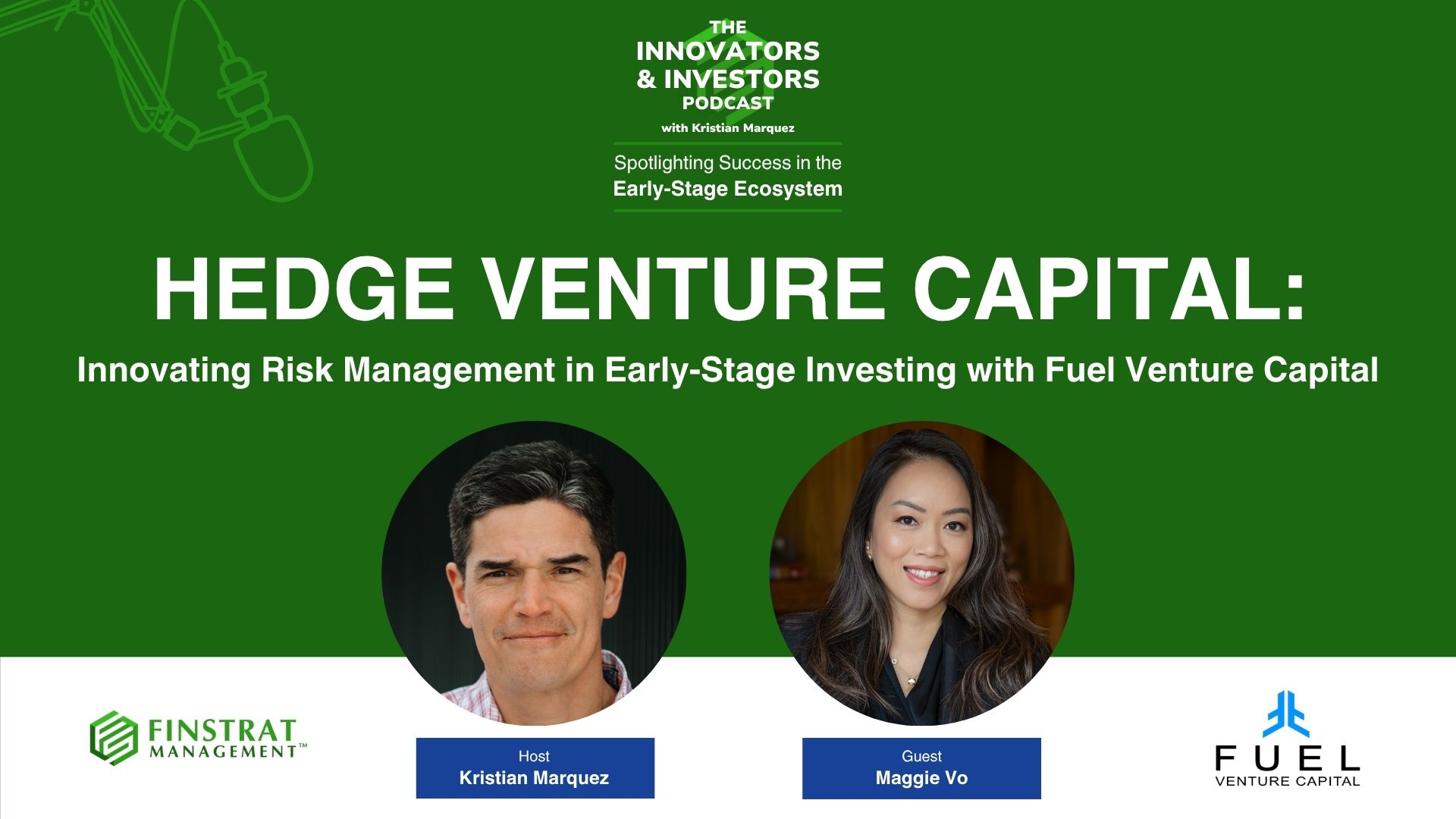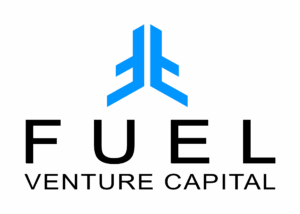Hedge Venture Capital: Innovating Risk Management in Early-Stage Investing with Fuel Venture Capital
July 11, 2025 | 44 MIN

Highlights
- Fuel Venture Capital invests globally in early to mid-stage tech companies, focusing on fintech, consumer platforms, enterprise SaaS, and AI.
- Maggie Vo pioneers “hedge venture,” a strategy combining hedge fund risk management with venture capital investing to minimize downside risk.
- Founding team quality, complementary skills, and resilience are critical factors in Fuel’s investment decisions.
- AI is viewed primarily as a productivity-enhancing co-pilot, not a full automation agent, supporting faster and smarter decision-making.
- Fuel emphasizes rigorous KPI tracking and unit economics to guide investment decisions and portfolio management.
- Maggie’s immigrant and diverse background provides a unique global perspective and competitive edge in venture investing.
- Fuel leverages AI internally for deal screening and investor relations, innovating in venture operations and engagement.
Summary
In this insightful episode of The Innovators and Investors Podcast, Kristian Marquez interviews Maggie Vo, Managing Partner and Chief Investment Officer at Fuel Venture Capital. Maggie shares her unique investment thesis, blending her background as a CFA charterholder and hedge fund manager with venture capital investing. Fuel Venture Capital focuses on early to mid-stage technology companies globally, with particular emphasis on fintech, consumer marketplaces, enterprise SaaS, and disruptive AI. Maggie introduces an innovative concept called “hedge venture,” which integrates hedge fund risk management strategies into venture capital to better manage downside risk while capturing upside potential. She discusses the importance of active involvement in portfolio companies, creative deal structuring, and rigorous due diligence, particularly around founding teams and key performance indicators (KPIs). Maggie also highlights her immigrant background as a competitive advantage, providing a diverse and global perspective that enriches investment decisions. The conversation delves deeply into the role of AI as a productivity co-pilot rather than a full replacement for humans, and how Fuel Venture Capital leverages AI both internally and within portfolio companies. Maggie emphasizes critical metrics such as unit economics, customer acquisition cost (CAC), lifetime value (LTV), and retention to evaluate startups. She concludes by sharing advice to her younger self about the importance of authentic networking and names Cathie Wood as a guest she admires for democratizing innovation investing in the public markets. The episode offers a rich, nuanced view of modern venture capital that balances innovation, operational rigor, and risk mitigation.
Key Insights
- Hedge Venture: A Hybrid Model for Risk Management
Maggie’s “hedge venture” approach redefines traditional venture capital by applying hedge fund principles, such as phased investments, active involvement, and protective legal terms. This model acknowledges the opaque nature of early-stage investing and mitigates risk by building conviction over time with smaller initial checks and operational engagement, rather than large upfront bets. This approach is especially relevant in today’s volatile economic environment, where downside protection is paramount. - Founders as the Cornerstone of Success: Beyond the Pitch Deck
Maggie stresses the importance of deeply understanding a founding team’s human capital, including their complementary skills, commitment, charisma, and growth mindset. She looks for resilience, ambition, and demonstrated overachievement in their career or personal history. This rigorous qualitative assessment ensures the team can navigate the unpredictable challenges of startup growth, which is often more telling than the business idea alone. - Global and Diverse Perspective as a Competitive Advantage
Coming from Vietnam and having built a career across markets, Maggie highlights how diversity in background and thought contributes to more robust investment decisions. Her unique vantage point challenges the homogeneity often found in venture capital and equips her firm to spot global opportunities, particularly in emerging markets, fostering a wider and more inclusive investment horizon. - AI as an Enhancer, Not a Replacement
Fuel Venture Capital views AI primarily as a tool that augments human productivity—an “AI co-pilot.” While AI accelerates tasks like document review, code generation, and sales training, Maggie believes human judgment remains crucial in interpreting AI outputs. This pragmatic stance balances enthusiasm for AI’s capabilities with a realistic understanding of its current limitations, especially in complex decision-making contexts like investing. - Focus on Metrics that Reflect Sustainable Growth
The firm prioritizes unit economics, customer acquisition cost (CAC), lifetime value (LTV), gross and net retention, and payback periods as key indicators of a startup’s health. Maggie warns against premature scaling with negative unit economics, which can amplify inefficiencies and erode culture. This disciplined focus on underlying financial fundamentals helps Fuel identify companies capable of durable growth and value creation. - Operational Involvement and Proactive Portfolio Management
Beyond capital, Fuel takes an active role on the board and in monitoring KPIs to spot early warning signs or growth opportunities. They emphasize monthly data collection and trend analysis, applying a hedge fund-style vigilance to venture investing. This operational hedge helps mitigate risks and shape company outcomes proactively, distinguishing Fuel’s hands-on approach from more passive models. - Technological Innovation in Venture Operations
Fuel integrates AI into its internal processes for deal screening and investor relations, including developing AI agents to help limited partners navigate complex data rooms. This use of technology not only improves efficiency but also enhances transparency and accessibility for investors, demonstrating how innovation can be applied to the venture capital business model itself.
Conclusion
Maggie Vo’s approach at Fuel Venture Capital exemplifies a sophisticated blend of traditional investment rigor and innovative strategies tailored for the complexities of modern venture capital. Her hedge venture model, emphasis on human capital, commitment to diversity, and thoughtful integration of AI technology provide a compelling blueprint for managing risk and unlocking value in early-stage investing. This episode offers valuable lessons for investors, founders, and anyone interested in the evolving landscape of innovation finance.
Stay up-to-date with Maggie Vo and her work with Fuel Venture Capital.
Follow the show on your podcast channel of choice or listen below.




